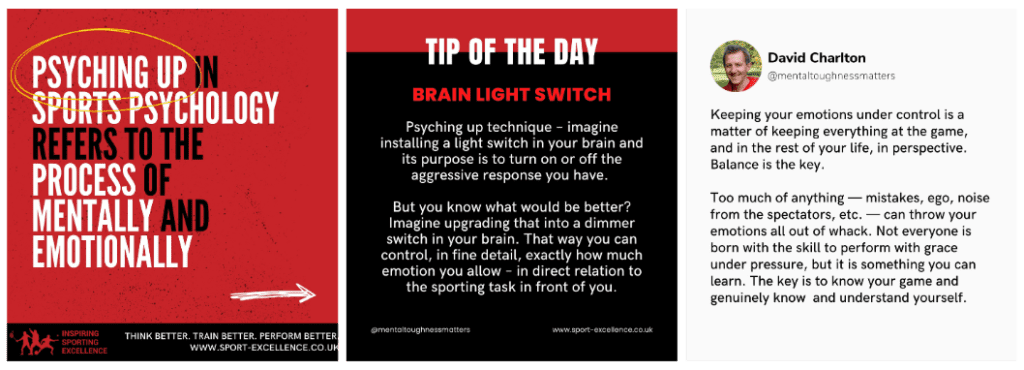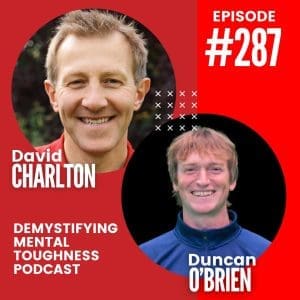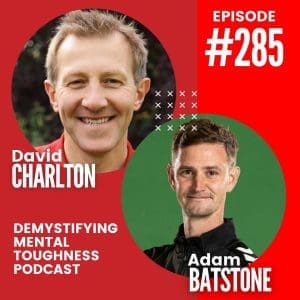09 June 2023

Helping You Gain A Mental Edge
How to Assert Yourself so That Other People Don’t Throw You Off Your Game
In different sports an athlete’s job varies according to their role and the specific sport. For example, a batter in cricket’s role is to score runs. For a defender in football or soccer it could be argued that stopping the opposition is the most important part of their job. In golf, it is to get the golf ball into the hole in as least shots possible. It’s simple right!
Not so, often some people have hidden agendas and can let their own ego get in the way potentially making it more difficult for others. For example, the controlling and aggressive coach, who rules with fear, in a team sport demanding unrealistic things from his or her players, leaving players frightened to voice their opinion and express themselves. Or the athlete in an individual sport who doesn’t fully understand what their coach is asking of them yet doesn’t act on their concerns and confirm with the coach what they mean. You also come across athletes who are shamed and embarrassed with “put downs” by team-mates.
By not voicing their concerns and opinions to others, I find many athletes as a result are never truly comfortable in their own skin when the pressure is on, when they compete, so they go on to struggle to show off their true potential. Youngsters in particular can struggle with this when they lack support and are challenged too much. Mindreading often becomes a habit for many.
Interpersonal confidence a small but vitally important element of mental toughness
An athlete with a high degree of interpersonal confidence will:
- Have the ability to deal confidently with other people when they are faced with challenging situations.
- Be better at dealing positively with people and won’t get too embroiled in mind reading.
- Promote themselves and the things that they represent.
- Be more assertive in dealing with difficult people and situations.
- Likely be more comfortable in social settings.
- Stand their ground when they need to.
- Not tolerate others dominating them.
- Take criticism in their stride.
- Be happy to have a debate or discussion and not worry if they are right or wrong.
How do we become more confident in our interpersonal relationships?
To ensure that athletes have the ability to deal more confidently with others, be more assertive, communicating expectations and important messages in a more open and honest manner, it is firstly, important to recognise patterns of behaviour, good and bad that you display in day to day life or when you are training or playing. Why not follow the following steps to help you:
STEP 1:
Start by getting a pen and some paper out and consider the following questions.
- Make a note of behaviours which typify an athlete who has high levels of interpersonal confidence.
- Make a note of behaviours which typify an athlete who has low levels of interpersonal confidence.
- Describe people that you know who have high levels of interpersonal confidence.
- Describe people that you know who have low levels of interpersonal confidence.
- What traps can you fall into?
Now what are you going to do about it and change moving forwards. Feel free to reach out and let me know by email. You could also listen to some of our podcasts for helpful ideas or read some of our resources.
STEP 2:
Why not tune into this week’s Demystifying Mental Toughness Podcast with former Premier League footballer Peter Ramage who share’s with me the importance of standing up for yourself and taking personal responsibility despite challenges or criticism.
STEP 3:
View our posts on Instagram where we share posts like:

STEP 4:
You could consider reading the following blogs to help you understand more about the benefits of interpersonal confidence in relation to sport performance and well-being.
Blog: 5 Reasons Team Captains Should Work with a Sports Psychologist
Blog: 3 Tips to Deal with Bullying in Sport
Blog: Communicating with Children in Sport
Blog: Why You Should Recognise The Power of Your Words
Blog: How Coaches Can Help Athletes Deal with Mistakes
STEP 5:
Listen to 5 relevant podcast episodes which discuss asserting yourself, culture, bullying and coach communication as well as a lot more.
Ep003: Peter Ramage – Developing a Premier League Mindset
Ep066: Marilyn Okoro – Mental Health and Resilience: Lessons from an Olympic Medalist
Ep105: Hannah Bromley – Overcoming Psychological Challenges in Professional Women’s Football
Ep161: Paul Phillips – How to Create a Culture of High Performance in Professional Rugby Union
3 WAYS TO LEARN MORE ABOUT OUR WORK:

Best Wishes
David Charlton
Online Sports Psychologist | Mental Performance Coach who supports many highly motivated athletes, young and old, developing their skills or who are already highly skilled so that they gain a mental edge and get the most from their talent across the globe from USA/Canada to Great Britain and Ireland to UAE, South Africa, Australia and New Zealand, using ONLINE Video Conferencing.
Managing Director – Inspiring Sporting Excellence
Host of Demystifying Mental Toughness Podcast
Founder of The Sports Psychology Hub
Author of The Mental Edge
With over a decades’ experience supporting athletes, coaches, parents and teams to transfer their skills from training to competitive situations, under pressure.
T: +44 7734 697769







